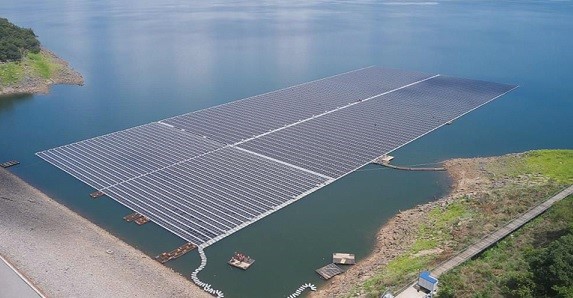By Kizito CUDJOE
The country’s pursuit of achieving a 10 percent renewable energy target by 2030 faces renewed scrutiny, with energy experts warning of potential shortfalls.
Initially conceived in 2003 under the Renewable Energy Development and Management Programme (REDP), the goal has only seen a modest achievement of about 0.8 percent by 2019. Despite aims to boost renewable energy in the national energy generation mix from 42.5 MW in 2015 to 1363.63 MW by 2030, with grid-connected systems totalling 1094.63 MW, the lack of active private sector involvement poses a significant challenge.
However, to accelerate the adoption of renewable energy, experts believe that the private sector must be incentivise to play a leading role, as highlighted in the National Energy Transition Framework (NETF).
They argue that the country’s aspiration to achieve net-zero emissions by 2070, greater penetration of renewable energy – particularly solar and wind – is essential, with projections indicating they will contribute 20 percent of the installed electricity generation capacity by 2070.
Currently, renewable energy constitutes 33 percent of the country’s energy mix, including large hydros, according to Dr. Robert Sogbadji, Deputy Director of Power (Nuclear and Alternative Energy) and Coordinator of the Energy Transition Committee of the Ministry of Energy.
However, modern renewables such as solar and wind only make up 3.1 percent, as clarified under the Renewable Energy Act, Act 1045.
While progress has been made with the implementation of the NETF, Denis Gyeyir, Africa Senior Programme Officer at the Natural Resource Governance Institute (NRGI), highlights the continued lag in private sector inclusion in renewable energy development.
“The government cannot do it. All the solar projects we have seen are either championed by Bui or Volta River Authority (VRA), or another state entity. We need the private sector to really lead. It shouldn’t just be rhetoric. We need to intensify private sector participation in the renewable energy space,” he said.
He stated that without proactively involving the private sector, the country could risk derailing the vision to achieve the 2030 target.
“Remember, already, we have missed the 10 percent renewable energy penetration target many times. And now we have shifted that to 2030, just six years away,” he added.
“If we don’t do much, we would miss. That is if we don’t accelerate efforts to ensure private sector participation, encourage actually private sector participation and provide the right incentives to the right companies, we will definitely miss this target,” he further said.
Mr. Gyeyir noted that while the current targets may not be ambitious, the country still needs to make significant efforts to bridge the gap.
Likewise, Isaac Kofi Batini, the Marketing, Public Relations (PR) and Projects Officer of the Association of Ghana Industries (AGI) Energy Service Centre, expressed hope for increased renewable energy penetration; but noted that the current pace of development is discouraging.
“We have been concerned about the slow pace because this was a target that was set many years ago and has been revised a couple of times,” he said.
Mr. Batini, addressing journalists at an energy transition workshop in Accra, said the industry is poised to collaborate with the government to expedite renewable energy development.
However, he stressed that the government, as a crucial stakeholder, must implement incentives that are both attractive and affordable for the industry.










